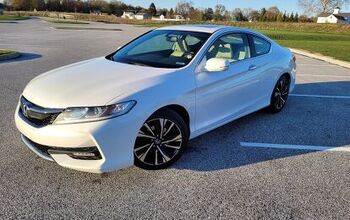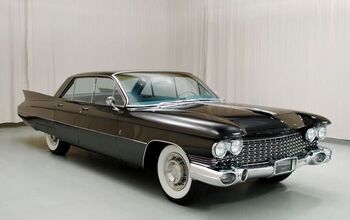More Cash Could Be on the Way for California Electric Car Buyers

Just as one incentive prepares to fade away, another green vehicle bonus looms on the horizon. California is considering upping the amount of cash buyers of electric vehicles stand to gain from their state government at purchase time — boosting the subsidy from today’s $2,500 to $4,500.
The potential change comes after Tesla reached the 200,000 limit for the full federal EV tax credit in July, with General Motors and Nissan trailing not far behind.
The boosted incentive is just one issue California lawmakers and regulators plan to discuss in hearings this week, Bloomberg reports. Much of the discussion will surely concern the state’s continued ability to set its own clean vehicle and emission mandates — a situation the Trump administration would like to see changed.
Currently, the California Air Resources Board’s Clean Vehicle Rebate Project (CVRP) offers buyers of battery-electric vehicles a $2,500 incentive, which can be combined with the $7,500 federal tax credit. Buyers of hydrogen fuel cells see $5,000 under this state program, while plug-in hybrid owners gain $1,500. Since the program’s inception in 2010, California has handed out over $572 million in incentives. Roughly 75 percent of eligible buyers tapped into this MSRP-reducing fund during the first five years.
As the federal government hasn’t renewed the Obama-era federal tax credit program, Tesla buyers stand to see their federal incentive halved starting on New Year’s Day, then halved again on July 1, 2019, before disappearing at the end of the year. GM and Nissan, makers of the Chevrolet Bolt and Nissan Leaf, should come up against the 200,000-vehicle threshold within a year. Obviously, losing an incentive could lead to fewer people getting into PHEVs or EVs. California doesn’t want that.
Funding for the existing state incentive program comes from California’s cap-and-trade program, but the additional $2,000 per vehicle, if approved, wouldn’t. That cash would come from the Low Carbon Fuel Standard, also overseen by CARB. Under that program, simply put, petroleum-based fuel providers that can’t meet the state fuel carbon standard buy credits from cleaner companies to offset carbon emissions. New revenue is available from this source, Bloomberg reports.
Because it’s coming from a different source, the money might reach buyers at the point of sale, rather than after the purchase. It’s not a done deal yet, however. We’ll update you later this week on whatever California decides.
[Image: General Motors]

More by Steph Willems
Latest Car Reviews
Read moreLatest Product Reviews
Read moreRecent Comments
- ToolGuy TG grows weary of purchasing gasoline. I don't care so much how or why, I am just tired of it. I still buy petroleum products, not 'boycotting oil,' but backing away from gasoline where I can. Sample size = 1.
- Probert Maybe it's not too late for the Dodge Neon I've always dreamed of!!! To the keyboard Robin!
- Akear The malibu still outsells all GM EVs combinedMalibu -150,000GM EV's - 75,000Maybe this represents how execrable GM EVs really are. Barra should have resigned years ago,
- Fred Short term bean counters give up the market and long term players gain shares.
- KOKing I thought they quit making it 3yrs ago so... no?


































Comments
Join the conversation
Minimize your footprint. Double GAS taxes. All cars on the road will drive less. 54 MPG Fed Standards will take a decade+ to make a small impact. BroDozers disappear. Yeah!
Nice work, idiots! Doubling down on trying to bribe people into driving horrible ugly weenie pods they don't want! FAIL!!!